
Topics
Guests
- Peter Kornbluhdirector of the Cuba Documentation Project at the National Security Archive at George Washington University. His new cover story for Politico on Lisa Howard is titled “'My Dearest Fidel': An ABC Journalist’s Secret Liaison with Fidel Castro.” Kornbluh is also co-author of the book Back Channel to Cuba: The Hidden History of Negotiations Between Washington and Havana.
A new Politico cover story reveals how an ABC journalist named Lisa Howard conducted a secret liaison with Cuba’s Fidel Castro, eventually establishing a secret back channel between Castro’s office and the White House. For more, we speak with Peter Kornbluh, who directs the Cuba Documentation Project at the National Security Archive at George Washington University, and who wrote the piece in Politico, “'My Dearest Fidel': An ABC Journalist’s Secret Liaison with Fidel Castro.”
Transcript
JUAN GONZÁLEZ: Peter, can we switch for a little bit? Can you talk about your new cover story for Politico, “'My Dearest Fidel': An ABC Journalist’s Secret Liaison with Fidel Castro,” this amazing story of this former anchor on ABC News, Lisa Howard, and her relationship to Castro?
PETER KORNBLUH: Well, you know, this is an important historical topic, because, in this day and age, we’re still looking for what Lisa Howard, back in 1963, called an “honorable rapprochement” with Cuba. It appeared that Barack Obama had achieved this, and now President Donald Trump is sabotaging that.
But Barack Obama’s kind of back-channel efforts to find common ground and a modus vivendi with the Cuban revolution, really, in some ways, starts more than 50 years before, with this pioneering ABC News journalist named Lisa Howard. Nobody remembers her today, but she was the first female correspondent for—full-time correspondent for ABC News. And she was the first woman to have her own serious news show. It was called Lisa Howard and News with a Woman’s Touch, sponsored by Purex. And it was geared, as ABC put it, for women by a woman.
But she was a really tenacious reporter. She set her sights on getting an interview with Fidel Castro, and she finally scored one in the spring of 1963. And, you know, this was very important. In that day and age, Fidel was just dismissed as the devil incarnate, a communist in the Caribbean. I mean, she went down there and actually talked to him and put him on the air and tried to introduce him and his issues to the American public. And, of course, she asked about what he wanted with U.S.-Cuban relations. And he said, “We think we can have better relations with President Kennedy. We think a rapprochement is possible.”
And from that point on, she, through kind of—secretly, pressed the issue with U.S. officials, first in the Kennedy administration and then in the Johnson administration, of improving ties. And she became Castro’s and Kennedy’s and Johnson’s interlocutor between each other. She actually established a channel of direct communication from Castro’s office to the Oval Office. And this is a history that’s really not very known. William LeoGrande and I wrote about it a bit in our book, Back Channel to Cuba. And now I’ve written the fuller story, based on her personal papers, in Politico magazine. It’s quite a story. And it has, I think, really great relevance to today. We are still looking for what she called that “honorable rapprochement.”
AMY GOODMAN: Peter, I want to turn to an excerpt of Lisa Howard’s 1963 interview with Fidel Castro, which aired on ABC News.
LISA HOWARD: Dr. Castro, do you feel there is any basis for a return to normal relations with the United States and Cuba with you as prime minister? And do you desire such a rapprochement?
PRIME MINISTER FIDEL CASTRO: I think it is possible if the United States government wish. And in that case, we would be agreed to speak and to find a basis.
AMY GOODMAN: That was Lisa Howard interviewing Fidel Castro in 1963. Just amazing. Before that, she had interviewed Khrushchev. She was a soap star in the '50s, right? She was The Edge of Night, As the World Turns, Guiding Light, for CBS Television, put it all down, said, “I care more about what's going on in the world,” goes on to interview Che Guevara, as well, but ultimately would commit suicide. Is that right?
PETER KORNBLUH: Yes, she died on Independence Day of 1965 from an overdose of barbiturates in the Hamptons. And in some ways, she flamed out. But she had some personal setbacks. She had had a miscarriage. She had been fired from ABC News for kind of openly opposing Robert Kennedy’s run for the Senate from New York because he was a carpetbagger, and she and the other liberal Democrats in New York thought that this was just, you know, crazy that he should come into their state and decide he could represent them. And she did that somewhat openly. And as a TV news anchor, ABC tried to restrain her from being so overtly political. And when she wouldn’t cooperate, they actually terminated her appearance on the show.
AMY GOODMAN: And you only found out about her personal intimate relationship with Fidel Castro because of the documents that have since come forward? She nor he ever talked about them, their relationship?
PETER KORNBLUH: In the declassified U.S. documents, you see this tension, because U.S. officials don’t want to really use her as an interlocutor because they think she’s a prominent news personality. She was one of the most famous news personalities in the United States of America in early '60s. We've all forgotten this. And they were worried that she would go on TV one day and talk about this back-channel diplomacy that was going on, and break the story and embarrass them. And so they were very reticent to deal with her, but she tenaciously pushed it. She repeatedly told them that she would be discrete. And she was. She took the secret of this relationship with Castro, the interaction, the secret diplomacy, to her grave. Castro himself also never really spoke about it publicly.
But she, luckily for us, did record her interactions with him and her conversations in personal notes, that I was able to obtain some years ago from her widower, Walter Lowendahl. And we have this important history. And it’s one of those great examples of two things. One, the historical foundations of the need to normalize relations with Cuba, and the fact that it’s been tried before and that it’s a great story. And two, she really was a citizen diplomat, if you will. She self-appointed herself as a secret emissary between Cuba and the United States. And if Donald Trump and the Trump administration is not going to have civil relations with the new government of Cuba, then it’s really up to us Americans to be that type of civil diplomat and conduct our own diplomacy.
AMY GOODMAN: Peter Kornbluh, we want to thank you for being with us, directs the Cuba Documentation Project at the National Security Archive at George Washington University. We’ll link your piece about Lisa Howard in Politico, “'My Dearest Fidel': An ABC Journalist’s Secret Liaison with Fidel Castro.”
PETER KORNBLUH: Thank you, Amy.
AMY GOODMAN: Also, Peter Kornbluh is author of Back Channel to Cuba: The Hidden History of Negotiations Between Washington and Havana.
When we come back, we go to Memphis, Tennessee. A well-known reporter there is arrested by police and handed over to ICE. Stay with us.

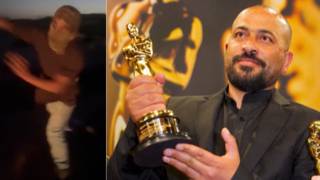
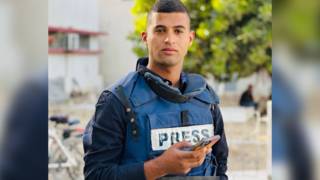
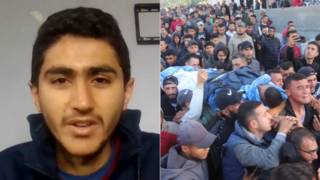
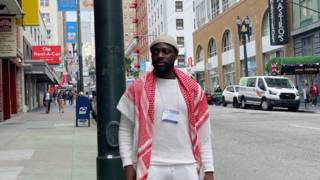





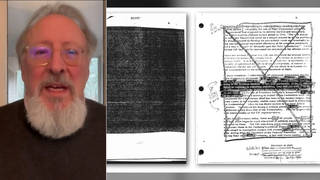
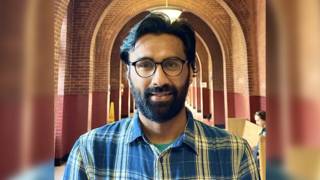
Media Options